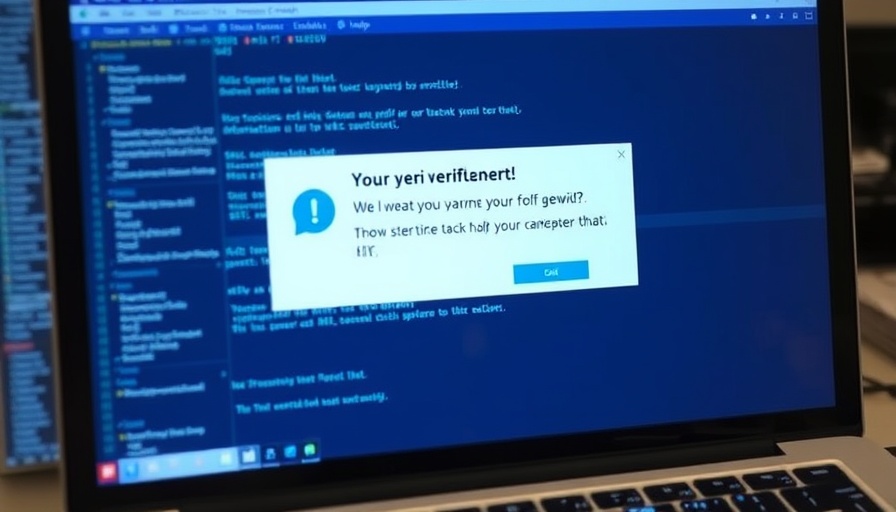
EDDIESTEALER: A New Frontier in Malware Threats
The digital world is witnessing a new wave of threats as a novel Rust-based malware known as EDDIESTEALER emerges, highlighting significant vulnerabilities in browser security. This malware employs an intricate social engineering tactic called ClickFix, which involves users being tricked into executing malicious scripts via fake CAPTCHA verification pages.
How EDDIESTEALER Operates
The operation of EDDIESTEALER begins with threat actors compromising legitimate websites, embedding malicious JavaScript that leads to the creation of a fictitious CAPTCHA page. Here, users inadvertently execute a harmful PowerShell script that retrieves the infostealer from a remote server. The script, dubbed gverify.js, collects sensitive data, including passwords and cryptocurrency wallet information, using a series of commands that operate stealthily within the victim's system.
The Threat Landscape: An Evolving Challenge
EDDIESTEALER represents a significant evolution in malware design, especially with its ability to bypass Chrome's app-bound encryption, which is meant to protect user data such as cookies. By leveraging a Rust version of ChromeKatz, the malware can extract credentials directly from the memory of Chromium-based browsers, effectively evading standard security measures. This capability points to an alarming trend of increasingly sophisticated attacks targeting consumers and organizations alike.
Why Users Should Stay Informed
The sophisticated nature of EDDIESTEALER calls for an urgent need for awareness in cybersecurity practices. As users navigate an ocean of online threats, recognizing the tactics employed by such malware can arm them against potential attacks. This includes being wary of suspicious CAPTCHA pages and maintaining robust security software to defend against emerging threats.
Conclusion: Protecting Yourself from Malware
As malware like EDDIESTEALER becomes more prevalent, users must adopt proactive security measures and stay informed about the evolving landscape of cyber threats. Ensuring the use of updated security protocols and fostering a culture of skepticism towards unfamiliar interactive prompts can significantly enhance individual safety online.



Write A Comment